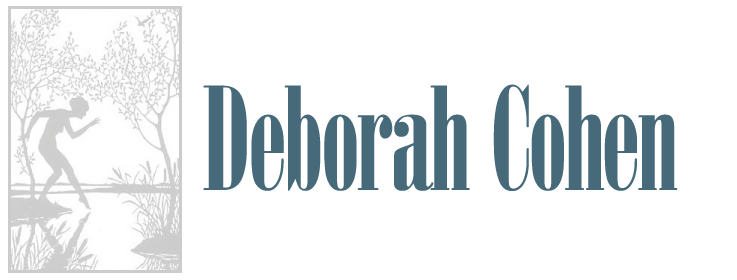Review in the Financial Times
Financial Times
Henry Hitchings
“….scrupulous research with cool analysis and a humane intelligence”
We tend to think secrets are toxic, polluting both the sanctity of families and the integrity of public life. Transparency is a political watchword, and candour is regarded as the hallmark of healthy relationships.
It is a cliché of our confessional culture that “the truth will set you free”. Frankness is represented as courageous – and also modern, the result of enlightenment’s steady progress. But, as Deborah Cohen shows in this wide-ranging study, the history of attitudes to secrecy, shame and disclosure is much more complex.
Today few will bat an eyelid on learning that someone they know was adopted as a child. Not many will be shocked when an unmarried woman gives birth. Yet we know that until quite recently adoption and illegitimacy were discussed either furtively or censoriously. So, of course, were the foibles and ambiguities of other people’s sexuality.
Cohen, a professor of history at Northwestern University, suggests that attitudes to such matters have shifted in ways less predictable than we may imagine. Among her more surprising revelations: Victorians deplored incest but saw it as an inevitable consequence of poverty, which caused families to live in conditions of tempting proximity.
Family Secrets begins with the profligacy of the 18th-century nabobs – those Britons enriched yet also encumbered by their exploits in colonial India. It hits its stride, though, when Cohen turns her attention to the Victorian divorce courts. These were a playground for artful advocates and no less artful perjurers. Couples’ private embarrassments were exposed to public scrutiny, with the testimony of all-seeing domestic servants proving especially ruinous.
If Cohen’s picture of Victorian lawyers calls to mind Dickens and above all Bleak House, her evocation of the dark workings of marital secrecy are closer to Wilkie Collins’ “sensation novels” of the 1850s and 1860s. Yet in showing us both the racy side of Victorian life and the more enlightened beliefs of many Victorian worthies, her research serves as a corrective to the tenacious image of that period’s Britons as frosty, unfeeling prudes.
The book’s most compelling section deals with changing attitudes to mental illness. In the 1870s mentally disabled children were sent to institutions such as the hospital at Normansfield in Middlesex, on the understanding that they could be cured. Although out of sight, they were not out of mind and were often reunited with their families.
By contrast, from the 1920s it was normal to dispatch such children to obscure locations where their disabilities could be hidden from view. They were in effect erased from the lives of parents who, thanks to the eugenics movement that developed at the start of the 20th century, guiltily associated physical and mental deficiencies with their own unseen genetic taints. Among those embarrassed parents was the pharmaceuticals magnate Henry Wellcome, who sent his mentally retarded son to live outside London, so as not to jeopardise the reputation of his business.
In later chapters Cohen spells out the progress of feminism, gay rights and psychoanalysis, exploring the significance of the anthropologist Edmund Leach’s claim that “the family, with its narrow privacy and tawdry secrets, is the source of all of our discontents”. Her stories are packed with interesting specifics. But, as we move from early 20th-century adoption to the recent craze for genealogy, via sketches of gay life and confessional literature, the book feels episodic.
Nevertheless there is much to savour in Family Secrets. Its chief strength is its cast of troubled characters. A personal favourite is Richard Blake Brown, an Anglican cleric who decorated the dining room of his Hampshire vicarage in an extravagant orange, lined his hood with rosebud-pink satin and described his hair as “deliciously crisp and fluffy and coy”, yet felt the need to sew up the most lewd volumes of his diary in a yard of calico and deposit them at the bank.
Cohen has a fine eye for such piquant detail. Her excavation of often dusty sources is amply documented – the end matter takes up roughly a third of the book. But she supplements her scrupulous research with cool analysis and a humane intelligence.
Henry Hitchings is author of ‘Sorry! The English and their Manners’ (John Murray)
http://www.ft.com/intl/cms/s/2/42441386-5f15-11e2-8250-00144feab49a.html...
